What is dementia? Dementia is a progressive condition that affects cognitive functions, memory, and daily life activities. It is not a specific disease but rather a general term for the decline in mental ability severe enough to interfere with daily life. While there is no cure, various treatments aim to slow its progression and improve quality of life. One emerging therapy, Hyperbaric Oxygen Therapy (HBOT), is being explored for its potential benefits in dementia care.
What Is Dementia?
Dementia refers to a group of symptoms that affect memory, reasoning, problem-solving, and language. It is caused by damage to brain cells, which hinders communication between neurons. The most common cause of dementia is Alzheimer’s disease, accounting for 60-80% of cases. Other forms of dementia include vascular dementia, Lewy body dementia, and frontotemporal dementia.
Common Symptoms of Dementia
Symptoms of dementia vary depending on the underlying cause but typically include:
- Memory loss that affects daily activities, such as forgetting names, appointments, or important tasks.
- Difficulty with communication and language, including struggling to find the right words.
- Impaired judgment and reasoning, leading to poor decision-making.
- Changes in mood and behavior, such as depression, anxiety, or aggression.
Early detection is crucial for managing the condition effectively. Read about dementia symptoms and diagnosis.
Causes and Types of Dementia

Alzheimer’s Disease
Alzheimer’s disease is the leading cause of dementia, marked by the accumulation of amyloid plaques and tau tangles in the brain, leading to neuron damage.
Vascular Dementia
This type of dementia results from reduced blood flow to the brain, often due to strokes or cardiovascular diseases.
Lewy Body Dementia
Characterized by the presence of abnormal protein deposits in the brain, this condition leads to cognitive decline, visual hallucinations, and movement disorders.
Frontotemporal Dementia
Unlike other forms, frontotemporal dementia primarily affects behavior and personality due to the degeneration of the brain’s frontal and temporal lobes.
Traditional Approaches to Dementia Management
There is currently no cure for dementia, but treatments focus on managing symptoms:
- Medications: Cholinesterase inhibitors and memantine are commonly prescribed to improve cognitive function temporarily.
- Lifestyle Modifications: Regular physical activity, a healthy diet, and mental stimulation can help slow cognitive decline.
- Cognitive and Behavioral Therapy: Programs designed to support memory and reduce behavioral challenges.
Introducing Hyperbaric Oxygen Therapy (HBOT)
Hyperbaric Oxygen Therapy (HBOT) involves breathing 100% oxygen in a pressurized chamber, enhancing oxygen delivery to tissues throughout the body. Initially used for conditions like decompression sickness and non-healing wounds, HBOT is now being studied for its potential role in neurodegenerative diseases like dementia.
The Role of HBOT in Dementia Care
HBOT has shown promise in enhancing brain function and alleviating symptoms of dementia through the following mechanisms:
Enhancing Oxygen Delivery to the Brain
Reduced blood flow and oxygen deprivation contribute to dementia progression. HBOT may counteract this by increasing oxygen levels in brain tissue, potentially improving cognitive function.
Potential Cognitive Benefits
Some studies suggest HBOT may improve memory, attention, and problem-solving skills in individuals with dementia.

Reducing Inflammation and Oxidative Stress
Chronic inflammation and oxidative stress are major contributors to dementia. HBOT has been found to reduce neuroinflammation, which could slow disease progression.
Clinical Evidence Supporting HBOT for Dementia
Several studies have explored the impact of HBOT on dementia patients:
- A 2020 study found that HBOT improved cognitive function and increased blood flow in individuals with mild cognitive impairment.
- Other research suggests HBOT enhances the brain’s ability to form new blood vessels and repair damaged cells.
Considerations and Future Directions
While HBOT offers promising results, it is essential to consult healthcare professionals before undergoing treatment. Potential risks include ear barotrauma and oxygen toxicity. Ongoing studies are needed to confirm HBOT’s effectiveness further and establish standardized treatment protocols.
Conclusion
Dementia is a progressive condition that affects millions worldwide, with Alzheimer’s disease being the most prevalent form. Although current treatments focus on symptom management, Hyperbaric Oxygen Therapy (HBOT) is emerging as a potential therapy for improving brain function, reducing inflammation, and enhancing oxygen delivery. While more research is needed, HBOT provides hope for a better quality of life for dementia patients.
If you or a loved one is experiencing signs of dementia, contact Chicago Hyperbaric to learn more about how HBOT may support cognitive health and well-being.




